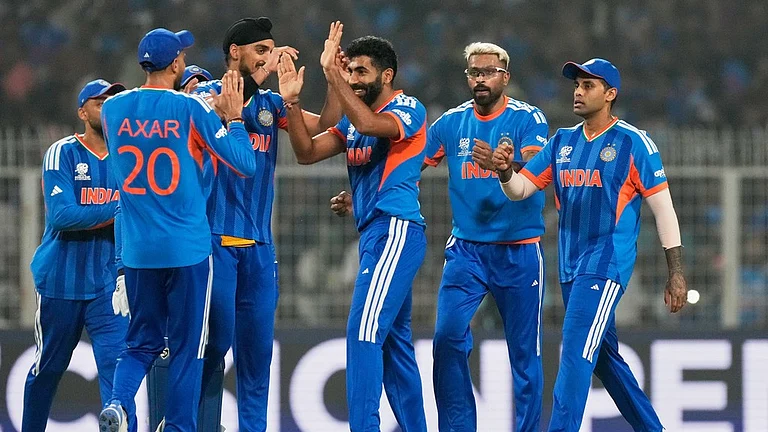In a recent development, the Supreme Court has addressed the plea challenging the Patna High Court's endorsement of the Bihar government's caste survey. The court has communicated that it will not halt the ongoing survey exercise unless the petitioners present a compelling prima facie case against it.
Solicitor General Tushar Mehta, representing the Centre, was granted permission by the apex court to provide a response within seven days regarding the survey's potential consequences. Mehta expressed concerns about the potential repercussions of the survey, stating, "We are not this way or that way. But this exercise may have some consequences and hence we would like to file our reply." However, he refrained from elaborating on the exact nature of these consequences, according to PTI reports.
The proceedings, presided over by Justices Sanjiv Khanna and SVN Bhatti, were adjourned at Mehta's request. The bench is currently hearing a series of petitions from various NGOs and individuals contesting the August 1 verdict of the Patna High Court. Among the petitioners is senior advocate Mukul Rohatgi, who sought a court directive to prevent the state government from publishing the data collected during the survey.
The bench clarified the distinction between the data collection phase, which has concluded, and the data analysis phase, which poses more challenges. It emphasized that unless the petitioners can establish a prima facie case against the survey, there will be no injunction on any aspect of the process. The bench further noted that the Bihar government had assured in a previous hearing that the collected data would not be published.
Despite Rohatgi's request for a restraining order, the bench cited a prior judgment in favor of the state, emphasizing the need for a prima facie case before any measures could be taken.
Representing the Bihar government, senior advocate Shyam Divan pleaded against including any restrictions in the court order. The bench subsequently scheduled the matter for resumed hearing on August 28, after Solicitor General Mehta requested time to submit the Centre's response.
In a previous session on August 18, the Supreme Court questioned the harm in providing caste or sub-caste details during the survey, especially since the individual data would not be disclosed by the state. The NGO 'Youth for Equality,' represented by CS Vaidyanathan, argued that the survey encroached upon individuals' right to privacy.
The Bihar government recently confirmed the completion of the caste survey on August 6, with the gathered data uploaded onto the BIJAGA (Bihar Jaati Adharit Ganana) app by August 12. It clarified that the data was accessible exclusively to government departments.
This legal tussle began when the Patna High Court's decision to allow the caste survey faced opposition from various quarters. Notably, the 'Youth for Equality' and 'Ek Soch Ek Paryas' NGOs, along with petitioner Akhilesh Kumar, contested the survey's legitimacy on constitutional grounds. Kumar's plea argued that according to constitutional provisions, only the Union government possesses the authority to conduct a census. The petition further alleged that the Bihar government's actions lack proper legislative competence and carry a hint of malafide intent.
In its expansive 101-page verdict, the Patna High Court upheld the state's actions as legally sound, undertaken with competence, and aimed at achieving development with justice.






















